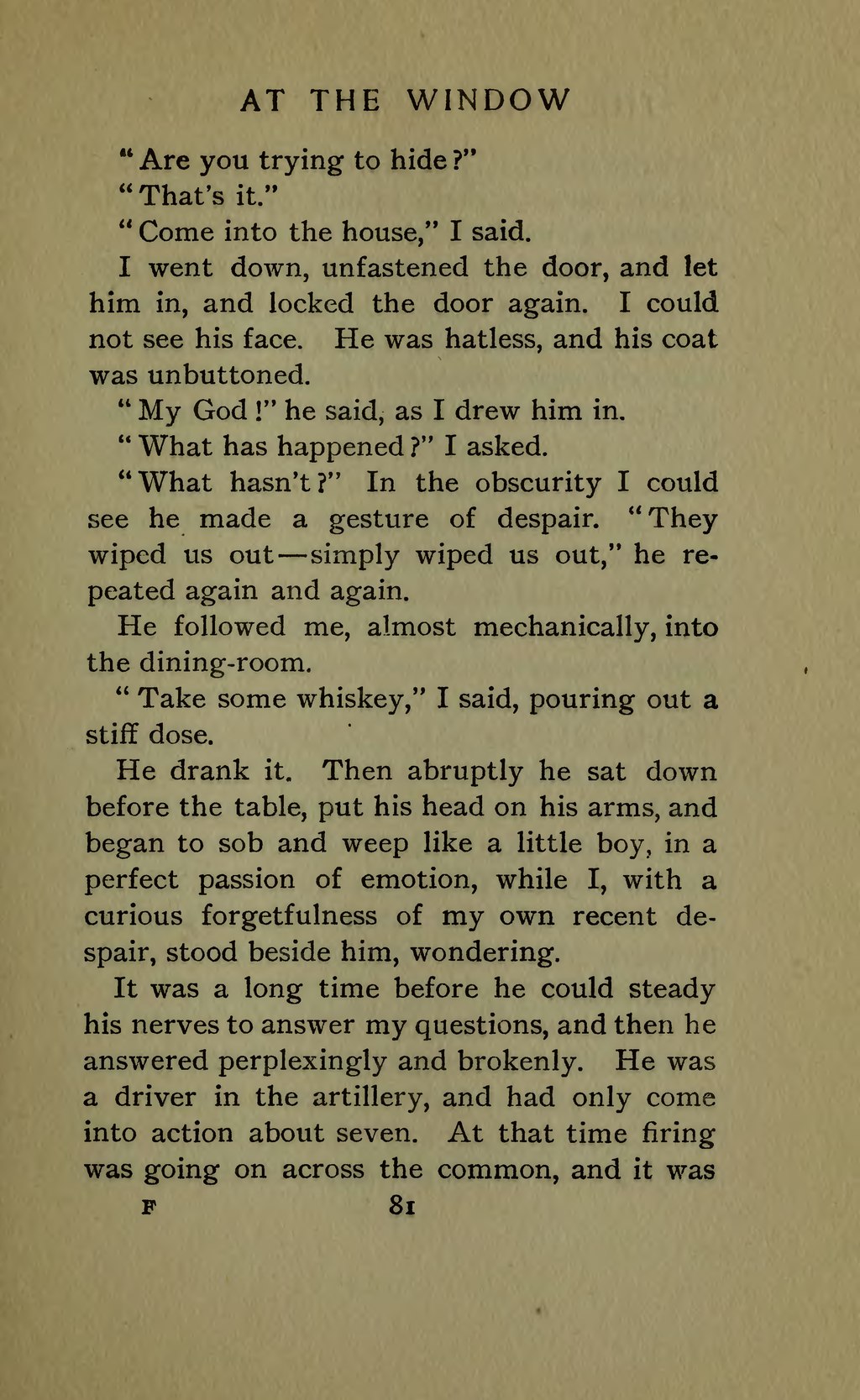AT THE WINDOW
"Are you trying to hide?"
"That's it."
"Come into the house," I said.
I went down, unfastened the door, and let him in, and locked the door again. I could not see his face. He was hatless, and his coat was unbuttoned.
"My God!" he said, as I drew him in.
"What has happened?" I asked.
"What hasn't?" In the obscurity I could see he made a gesture of despair. "They wiped us out—simply wiped us out," he repeated again and again.
He followed me, almost mechanically, into the dining-room.
"Take some whiskey," I said, pouring out a stiff dose.
He drank it. Then abruptly he sat down before the table, put his head on his arms, and began to sob and weep like a little boy, in a perfect passion of emotion, while I, with a curious forgetfulness of my own recent despair, stood beside him, wondering.
It was a long time before he could steady his nerves to answer my questions, and then he answered perplexingly and brokenly. He was a driver in the artillery, and had only come into action about seven. At that time firing was going on across the common, and it was
81
